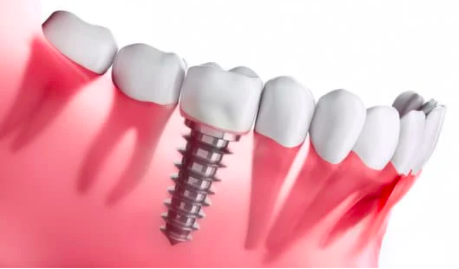If you have a medical condition, you might wonder if you can still get dental implants. Here are eight common conditions and how they might affect your ability to get dental implants.
Jawbone Loss & Dental Implants:
How Reduced Bone Density Impacts Your Treatment Plan
Your jawbone supports dental implants, so bone loss can impact your treatment plan. Dr. Turner uses 3-D CT scans to check your bone and see if it can support implants. If needed, she might recommend a bone graft, using bone from your body, a donor, or other sources to help your jawbone grow. Bone grafts can:
- Regenerate lost bone and tissue
- Improve your jaw shape
- Increase the success rate of dental implants
Gum Disease & Dental Implants:
Managing Infections for Optimal Oral Health
The severity of gum disease affects when you can get dental implants. Severe gum disease damages tissue and bone, but implants need a healthy environment. If you have advanced gum disease, our dental implant specialist, Dr. Turner, will treat it first to restore your oral health. Risks include:
- Implant failure
- Bone loss
- Infection
- Gum disease around implants
Heart Disease & Dental Implants:
Tailoring Procedures for Cardiovascular Safety
Heart disease affects blood flow and healing, but most people with it can still get dental implants. Our doctors review your medical history and take precautions. If you have an artificial heart valve, a history of heart infections, certain congenital heart diseases, or a heart transplant, you might need antibiotics before surgery.
Diabetes & Dental Implants:
Ensuring Optimal Healing with Blood Sugar Control
Well-controlled diabetes allows for dental implants, but uncontrolled diabetes can slow healing. Dr. Turner works with your physician to ensure your blood sugar levels are stable. Managing your diabetes reduces the risk of complications and helps your implants last longer.
Osteoporosis & Dental Implants:
Evaluating Bone Health for Implant Success
Osteoporosis makes bones fragile, but many people with it can still get dental implants. Dr. Turner uses 3-D CT scans to assess your jawbone. Research shows osteoporosis does not significantly affect implant success rates.
High Blood Pressure & Dental Implants:
Managing Hypertension for Safe Procedures
High blood pressure (HBP) needs to be managed before considering dental procedures, including dental implants. HBP puts you at risk for stroke and kidney damage, among other conditions. Dr. Turner will review your medical history and medications to prevent complications. She will also monitor your blood pressure during the procedure and use sedation to keep you calm.
Cancer & Dental Implants:
Customized Strategies for Post-Treatment Care
If you’ve had chemotherapy or radiation for oral, head, or neck cancer, it can affect your immune system and jawbone. Our dental implant specialist, Dr. Turner, will evaluate your case to see if you qualify for dental implants. She considers the timing of your treatments and whether you need a bone graft, and will tailor your treatment plan for the best outcome.
Autoimmune Conditions & Dental Implants: Balancing Immune Health for Long-Term Success
Dental implants can be safe if you have an autoimmune disease. Studies show implant success rates are similar for people with and without these conditions. Good oral hygiene and regular check-ups are crucial for long-term success.
Request a Consultation in Venice, FL:
Personalized Dental Implant Solutions for Your Unique Needs
If you’re interested in dental implants but have a medical condition, schedule a consultation at Venice Periodontics & Implant Dentistry. Our specialized team will listen to your concerns and explain how you can achieve a healthier, more attractive smile. Learn more about dental implants and explore your options with us.








